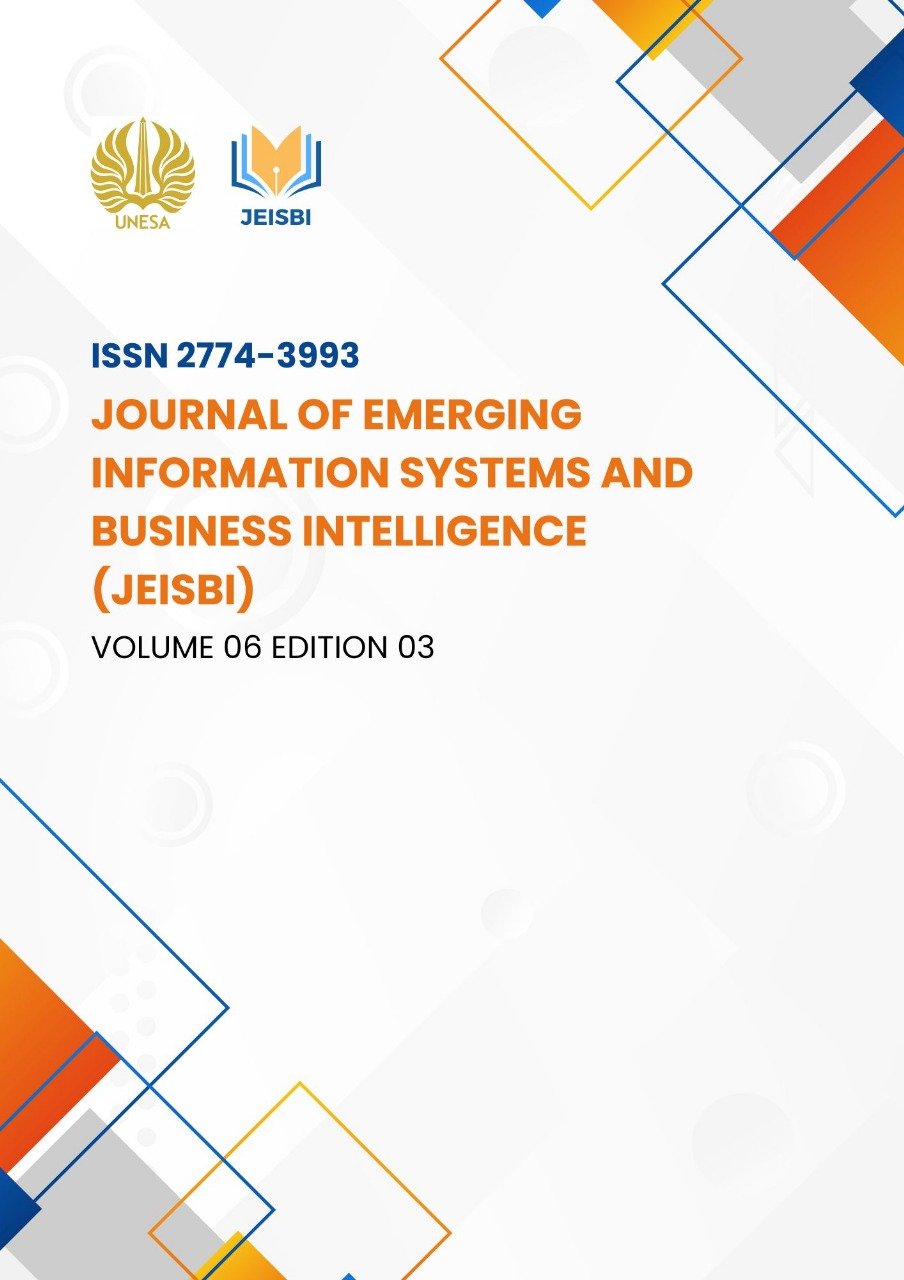Prediction of Goods Damage in Land Transportation Services (Trucking) Using Naïve Bayes
DOI:
https://doi.org/10.26740/jeisbi.v6i3.66306Keywords:
Land transportation, Cargo damage prediction, Naïve Bayes, Logistics analytics, Risk assessment, Predictive modelling.Abstract
Land transportation plays a crucial role in supporting economic dynamics, yet cargo damage remains a significant challenge that affects the supply chain, efficiency, customer satisfaction, and financial stability. This research aims to analyze the factors influencing cargo damage and predict its likelihood using the Naïve Bayes classification algorithm. A case study was conducted at PT. Tuntas Smart Solusi, a logistics company in Gresik, Indonesia. The Knowledge Discovery in Databases (KDD) framework was employed to process historical shipping data from 2021 to 2023, incorporating variables such as cargo type, shipping route, weather conditions, and load capacity. The results indicate that adverse weather conditions, excessive load weight, and rough routes significantly contribute to cargo damage rates. The Naïve Bayes classifier demonstrated high predictive accuracy, validated using k-fold cross-validation, proving its effectiveness in logistics risk assessment. The findings offer strategic recommendations for logistics companies to minimize damage risks, including optimized packaging strategies, route selection improvements, and predictive monitoring systems. By integrating machine learning-based predictive analytics, logistics firms can enhance operational efficiency, reduce financial losses, and improve overall service quality.
Downloads
Downloads
Published
How to Cite
Issue
Section
 Abstract views: 49
,
Abstract views: 49
, PDF Downloads: 45
PDF Downloads: 45


